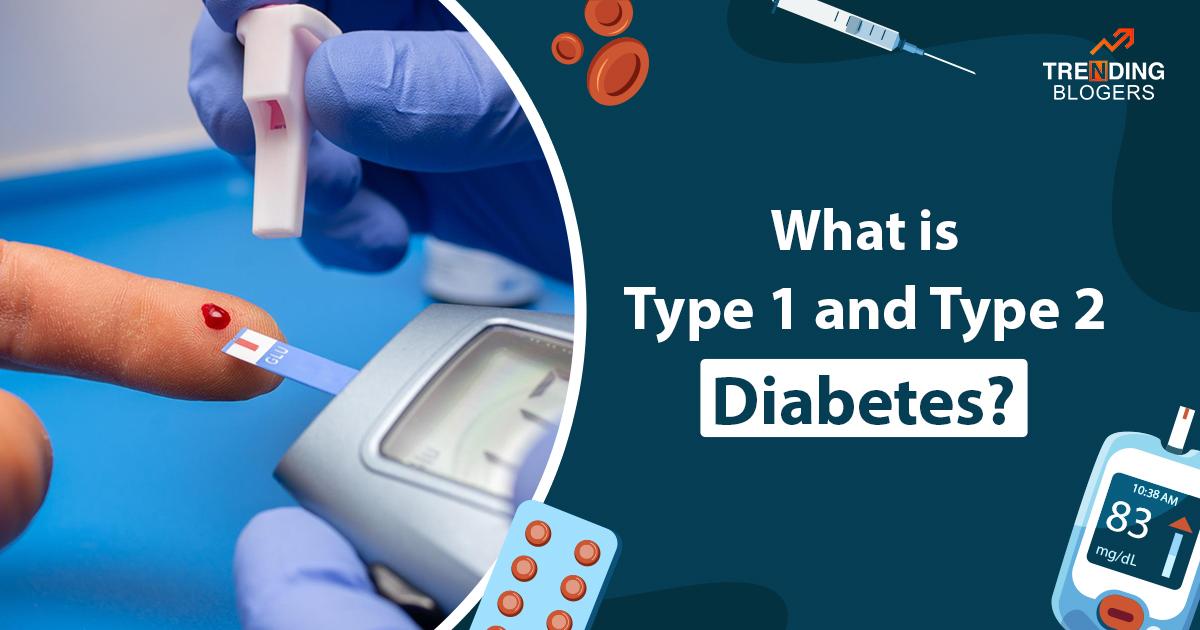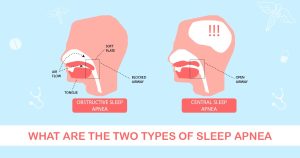Different diabetes types affect millions of lives across the globe, impacting their daily lives and requiring careful management. There are two main types of diabetes Type 1 and Type 2. While in both of the conditions, blood sugar levels rise, different diabetes types differ significantly in their causes, symptoms, and treatment approaches.
What is the Type 1 Diabetes?
Type 1 diabetes is a rare autoimmune disorder in which the immune system of the body destroys pancreatic cells producing insulin. Insulin is a hormone that maintains and regulates blood sugar levels by enabling glucose to enter cells for energy. With the destruction of beta cells, the body is unable to produce insulin, leading to an insulin deficiency.
Know the Causes of Diabetes
Medical studies and research are ongoing, but the exact reason behind Type 1 diabetes is not known to date. It is mostly diagnosed in childhood or adolescence, although it can occur at any age.
In individuals with a genetic predisposition, an environmental trigger, such as a viral infection, may lead the immune system to mistakenly destroy the beta cells in the pancreas. This immune response can cause a significant reduction or complete absence of insulin production.
Main causes of Type 1 Diabetes
- Genetic factors: Individuals whose parents, grandparents, or great-grandparents have Type 1 diabetes are at a higher risk of this type of diabetes.
- Autoimmune response: The immune system mistakenly targets and destroys insulin-producing beta cells.
- Environmental triggers: Viral infections, such as enteroviruses, can trigger the autoimmune response in susceptible individuals.
What are the Symptoms of Diabetes Type 1?
Diabetes symptoms vary for diabetes Type 1 and Type 2. Recognizing these symptoms is important for the effective diagnosis of types of diabetes and its management. Some of the common diabetes type 1 symptoms include:
- Excessive thirst and hunger: As the body fails to use glucose for energy, people may experience excessive thirst and hunger.
- Frequent urination: As the kidneys attempt to eliminate excess glucose from the blood, it leads to frequent urination.
- Unexplained weight loss: Despite increased appetite, the body extracts energy from muscle and fat, leading to excessive weight loss.
- Fatigue: As the body fails to utilize glucose efficiently, you may feel tired regularly.
Treatment
Diabetes Type 1 can be managed by replacing the lost insulin with artificial insulin to maintain optimal blood sugar levels. Here are common approaches to insulin management:
- Insulin injections: Most individuals with type 1 diabetes use injections of insulin many times in a day to replace the natural insulin release in response to meals.
- Insulin pumps: These devices deliver a continuous supply of insulin throughout the day, with additional doses for meals.
Additionally, advancements in technology, such as continuous glucose monitoring systems, help individuals with diabetes Type 1. It enables them to keep a check on their blood sugar levels in real time, allowing for better control and adjustment of insulin doses.
Type 2 Diabetes
Diabetes Type 2 is a case of insulin resistance, where the body cells stop responding effectively to insulin. In the initial phase, the pancreas compensates by producing more insulin, but over time, it fails to keep up with the demand. This results in insulin deficiency and elevated blood sugar levels.
Unlike diabetes Type 1, Type 2 diabetes is often linked to a combination of genetic and lifestyle factors. Type 2 diabetes develops because of various factors, some of which are mentioned below:
Causes of Diabetes type 2
- Genetic predisposition: Individuals with a genetic history of this type of diabetes are at an increased risk.
- Obesity: Excess body weight, especially around the abdomen, is a significant risk factor.
- Physical inactivity: A sedentary lifestyle contributes to insulin resistance.
- Poor diet: Diets high in refined sugars and fatty diets can contribute to the development of Type 2 diabetes.
These factors, combined with age and ethnicity, lead to the onset of type 2 diabetes.
Symptoms of Diabetes type 2
Type 2 Diabetes symptoms may be subtle at first as it develops gradually. Regular health check-ups and awareness of these symptoms are crucial for early diagnosis and intervention. Common signs and symptoms include:
- Increased thirst and hunger: The body struggles to utilize glucose efficiently resulting in increased thirst and hunger.
- Frequent urination: As the kidneys attempt to eliminate excess glucose from the blood, one may experience frequent urination.
- Fatigue: People may feel tired because of the body’s inability to convert glucose into energy.
- Blurred vision: A high level of sugar in blood can affect the eyes’ lenses.
Treatment:
Managing Type 2 diabetes involves a multifaceted approach, primarily focusing on lifestyle modifications and, in some cases, medication. Here are key aspects of diabetes Type 2 treatment:
- Lifestyle changes: A healthy diet, regular physical activity, and a healthy weight are fundamental in managing Type 2 diabetes. These changes can often improve insulin sensitivity.
- Oral medications: Various medications, such as metformin and others, may be prescribed to help control blood sugar levels.
- Injectable medications: In some cases, individuals with type 2 diabetes may require injectable medications like insulin or glucagon-like peptide-1 (GLP-1) receptor agonists.
- Monitoring: Regular monitoring of blood sugar levels is crucial for adjusting treatment plans and maintaining optimal control.
Prevention and Management of Diabetes
While the causes and characteristics of Type 1 and Type 2 diabetes differ, there are common strategies for prevention and management:
- Healthy lifestyle: Adopting a balanced diet, doing regular physical activity, and maintaining body weight according to your BMI can reduce the risk of any diabetes type.
- Regular monitoring: Monitoring blood sugar levels time to time is important in both types of diabetes to ensure effective management.
- Medication and insulin therapy: Depending on the type of diabetes, medication, and insulin therapy may be prescribed to maintain optimal blood sugar levels.
Bottom Line:
Recognizing and understanding the different types of diabetes is essential for effective management and treatment, as each type requires different approaches and treatment. While Type 1 diabetes is an autoimmune condition that needs lifelong insulin therapy, Type 2 diabetes is linked to lifestyle factors and can be managed with lifestyle changes and medications. Regardless of the type, early diagnosis, proper lifestyle changes, and the right approach to treatment are important for individuals living with diabetes.
Also Read About: How To Prevent Ectopic Pregnancy?




